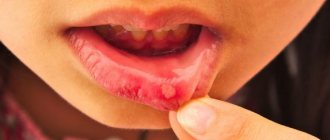Tetanus is an infectious disease that affects motor cells and the central nervous system. Causes convulsions and toxicosis, can lead to disability and death. Tetanus infection is common in the environment. Infection often occurs through open wounds, microtraumas and mucous membranes. Newborns can become infected through the umbilical cord; children most often become infected when walking barefoot and getting injured.
There is no natural immunity against this dangerous infection. Even after an illness, short-term immunity occurs, and susceptibility to infection is extremely high. The only way to protect children and adults from tetanus is through vaccination.
Scheme of routine vaccination of children against tetanus
Vaccination is included in the National Preventive Vaccination Calendar. Routine vaccinations are given to children in all regions of the country. Immunization begins at the age of 3 months and involves the administration of adsorbed diphtheria-tetanus pertussis vaccine (DTP) or adsorbed diphtheria-tetanus toxoid (TDT). The drug is administered three times with an interval of 45 days. A year later, revaccination is carried out.
Children need the next tetanus vaccinations at ages 7 and 14. At this age, the pertussis component is not used.
If the child was not vaccinated in infancy, the course of vaccination with “AS-anatoxin” includes two vaccinations with an interval of 30-40 days. Revaccination is carried out after 6-12 months.
In the future, a single revaccination with “AS-anatoxin” is required every 10 years throughout life.
The drug is administered subcutaneously under the shoulder blade. Tetanus vaccinations for children under 6 years of age can be given intramuscularly. "AS-anatoxin" is not combined with vaccines against other infections. The next scheduled vaccinations are given no earlier than 2 months after the administration of AS-anatoxin.
And here we need a vaccination
Summer residents working on their plots, as well as agricultural workers, are the main risk groups for contracting tetanus. This infection causes death in 39–50% of patients, and its typical complications are bone fractures, muscle ruptures (muscle spasms are so severe), and cardiac arrest.
“Almost all cases of tetanus occur in those who have never been vaccinated,” says pediatrician, advisor to the director of the National Medical Research Center for Children’s Health, professor, vaccination specialist Vladimir Tatochenko . – Vaccination does not prevent the disease 100%, but if infected, the disease is much milder. Tetanus vaccination is carried out in childhood. These are three vaccinations in the first six months of life, and then revaccination to strengthen immunity at 1.5 years, at 6–7 years, and at another 14 years. Therefore, a child who has gone through all these stages necessary for his age does not need to do anything additional when receiving wounds that may be contaminated by the earth - he has immunity. The exception is deep wounds, in which case an emergency dose of tetanus vaccine is necessary.
"Danger signal number one." How to avoid getting tetanus? More details
It’s getting worse with adults; the majority are unprotected from tetanus, as immunity to its causative agent gradually weakens. And to maintain it, from the age of 18 they need to undergo revaccination - vaccinations every 10 years. This is prescribed in the National Vaccination Calendar, but, unfortunately, few people do them. Moreover, few adults know that this is necessary. Therefore, when receiving wounds contaminated with soil, everyone who was vaccinated more than 5 years ago is recommended to administer specific antitetanus drugs. And you need to take this seriously.
Emergency prophylaxis of tetanus
Emergency preventive measures against tetanus infection are carried out when:
- injuries resulting in an open wound;
- tissue necrosis;
- damage to the gastrointestinal tract, resulting in open wounds;
- burns, frostbite 2-4 degrees;
- animal bites.
In such situations, the risk of infection is highest, so the vaccine is administered along with wound treatment. The earlier immunoprophylaxis is done, the higher the chances of avoiding infection. You can start 20 days after receiving a serious injury.
For emergency preventive vaccination against tetanus for children who are vaccinated in accordance with the National Calendar, it is enough to administer 0.5 ml of “AS-anatoxin”. If the child has not previously been vaccinated against tetanus infection, active-passive immunization is necessary. In this case, 1 ml of tetanus toxoid is combined with 3000 IU of anti-tetanus serum. After this, vaccination with toxoid is carried out according to the standard procedure.
The importance of tetanus vaccination
A distinctive feature of tetanus is that it is not the bacterium itself that disrupts the functioning of the central nervous system, but the toxin that it produces.
The second distinctive feature is that the development of the disease is almost asymptomatic, which does not allow timely initiation of drug treatment.
And the third is a very short incubation period and rapid development of the disease, which can kill a person within two weeks.
Failure to immunize the body in time can lead to dire consequences.
For children and adolescents, tetanus vaccination is a mandatory scheduled procedure, according to the vaccination schedule.
An adult, from the age of 18, independently determines for himself the need for immunization of the body.
Over the past five years, not a single case of infection of a child has been recorded in Russia. While adults still face this terrible disease and more than a third of cases are fatal.
Possible contraindications and reactions to vaccination
Vaccination with "AS-anatoxin" against tetanus infection is not done if the child:
- non-communicable or infectious diseases;
- chronic pathologies in an acute form;
- protracted serious illnesses (tuberculosis, meningitis, hepatitis, etc.);
- allergy to the components of the drug;
- a severe reaction occurred during a previous vaccination;
- impaired immunity (immunosuppression, oncology, anemia).
You can get a tetanus vaccination no earlier than a month after recovery or in a state of remission of chronic pathologies.
"AS-anatoxin" can cause general and local adverse reactions. Local symptoms include redness, itching, swelling, and soreness. They disappear after 1-2 days. Common reactions include fever and weakness. Rarely, complications may develop: anaphylactic shock, joint pain, fever, skin rashes. If your child develops complications, you should definitely consult a doctor.
Possible reactions
A number of reactions may occur after receiving the tetanus vaccine in adults and children. They are normal and do not require action on the part of adults or parents of vaccinated children. Such reactions include:
- formation of a lump at the injection site;
- pain at the injection site;
- temperature rise no higher than 38 degrees;
- drowsiness and weakness or, conversely, excitability;
- headache.
The reactions indicate the development of immunity and the successful functioning of the body's immune response. Within a few days, these reactions completely disappear.
In rare cases, tetanus vaccination can lead to complications; if they are observed, you can consult a doctor:
- temperature rise above 40 degrees;
- pain in the heart area;
- bronchitis, runny nose, increased salivation, pharyngitis;
- upset stomach, vomiting, loss of appetite;
- disruption of brain function.
If you are allergic to the components of the vaccine, angioedema, urticaria, rash, and anaphylactic shock may occur. Tetanus vaccination at NEARMEDIC is performed only after an examination and identification of contraindications and allergic reactions. If complications are serious and cause concern, you should contact an ambulance.
Immunization against tetanus at SM-Clinic
At SM-Clinic you can get children's tetanus vaccinations at an affordable price. Routine and emergency vaccinations are provided for a fee and include a full range of medical services. Before vaccination, the clinic doctor will definitely examine the child, do thermometry, and, if necessary, prescribe additional laboratory tests. This approach allows us to identify any contraindications and make vaccination as safe and effective as possible.
Call and make an appointment. Before visiting the clinic, be sure to check the availability of the vaccine.
Where do children get tetanus vaccinations?
Tetanus vaccination for children is given intramuscularly, into the deep layers of the muscles. For vaccination, areas of the body with developed muscles, minimal fat and thin skin are selected. If the drug gets under the skin, unwanted inflammatory processes may begin. A tetanus injection is given to children under three years of age in the front surface of the thigh, and for those older - in the subscapular area. Parents are warned that after vaccination, children should not visit public places where there may be people infected with colds and other diseases, since in the first days after vaccination, immunity is somewhat reduced.
How does vaccination work?
Traditionally, one of the following drugs is used:
- ADS – vaccination against tetanus and diphtheria;
- ADSm – ADS with a reduced dose of tetanus toxoid;
- DPT – for whooping cough, diphtheria and tetanus.
Pentaxim - vaccination against whooping cough, diphtheria, tetanus, polio and Hib infection
Tetanus serum is included in the DTP, vaccination is carried out in accordance with the National Preventive Vaccination Calendar. It also includes immunization against whooping cough and diphtheria.
According to the schedule, in the first year of life, infants are administered three tetanus toxoids:
- The first DTP is given to children three months old. It does not provide full immune protection - at least twice the application is necessary.
- The second is from 4 to 5 months.
- The third - in six months. After the third injection, the baby’s body is 100% protected.
The vaccination schedule provides for five-time immunization of children.
Preschoolers 7 years old and adolescents 16 years old receive it according to routine vaccination.
Possible adverse reactions
As a rule, the drug is well tolerated, without causing deterioration or complications. It is more difficult for a child’s body to cope with the load after vaccination, so in children side effects occur more often and the symptoms are more obvious and last longer.
Post-vaccination reactions in children
DTP is the most powerful drug for a child’s body.
According to statistics, every third child experiences a reaction to a tetanus vaccine, with possible symptoms such as:
- increased body temperature;
- slight malaise;
- lack of appetite;
- compaction and pain at the injection site;
- increased salivation.
Such symptoms can be observed for no more than 4 days. Then everything goes away.
If, after a tetanus vaccination, uncharacteristic symptoms are observed: strabismus, the appearance of red spots on the body, severe pain, difficulty breathing, an increase in redness of the injection site by 10 cm or more, a temperature above 39°C - you must immediately consult a doctor or call an emergency room. help.
Article on the topic: Temperature during poisoning - causes, how long it lasts in a child or adult, methods of treatment
Reaction to vaccination in adults
The mature, stronger body of an adult tolerates such loads more easily and quickly. Mild symptoms may occur:
- deterioration of general condition - feeling tired and exhausted;
- manifestation of hyperactivity or, conversely, passivity;
- lack of appetite;
- increase in body temperature.
Perforation symptoms appear for no more than two days and go away on their own.
Vaccination calendar for children and adults
When do you get a tetanus shot?
You can get vaccinated against tetanus at any age. But there are slight differences when it is given to children and when to adults. Currently, in Russia, vaccination against tetanus is mandatory and is included in the National Calendar of Preventive Vaccinations. He dictates the timing of vaccinations for newborns: the primary course of vaccination consists of 3 vaccinations - the first at 3 months, then two more consecutive ones with an interval of 45 days each, that is, at 4.5 and 6 months.
The following vaccinations are called booster vaccinations. So, the first revaccination is done after 12 months, that is, at about 1.5 years, then at 6 years and at 14 years. A full course of vaccinations creates lasting immunity, including against tetanus, and reliably protects the body.
An example of a vaccination schedule for 2014. Photo: zoj.org.ru
A separate tetanus vaccine is not generally used in children. It is customary to vaccinate newborn babies with the combined DPT vaccine (in addition to tetanus toxoid, it includes components that create immune protection against Whooping Cough and Diphtheria).
Chickenpox vaccination 1
54
Interesting fact! In 2021, in the US state of Oregon, the first case of tetanus in two decades was detected in a 6-year-old boy from a family of staunch anti-vaccinationists. He injured himself at home on the farm while playing football. The disease was severe, his stay in the intensive care unit was 2.5 months, but he remained alive. It took another 2 months for rehabilitation, the boy was able to move and play again. Doctors advised parents to vaccinate their child, since the disease does not cause immunity. However, the parents refused. The cost of treatment was 812 thousand dollars. The cost of one dose of DTP in the United States is $25.
Why three vaccinations in one? Isn't this dangerous for children's fragile immunity?
The fact is that the tetanus vaccine contains components that protect the baby from 3 deadly infections in infancy. Antibodies received from the mother protect children at this age from many diseases, but they may not exist. Measles and whooping cough are extremely contagious. It is necessary to protect the baby as soon as possible; the damage from them can be irreparable. There are simply no effective treatment options.
It is known that DTP vaccination is not easily tolerated by children. Before the first vaccination, the doctor will carefully examine the baby, and will also ask for tests and prescribe an examination by a neurologist to find out everything possible about the state of health and minimize risks. There are safer foreign versions of this vaccine, for example Pentaxim or Infanrix. The best option for tetanus vaccination is decided by parents together with their doctor.
Vaccine Pentaxim. Photo: medicia.ru
Vaccine Infanrix. Photo: yandex.ru
Tetanus shot for injury
Necessarily! In this case, emergency prevention will come to our aid. Its task is to teach the body to neutralize tetanus toxin as quickly as possible. Emergency vaccination consists of 2 things: anti-tetanus serum (ready-made antibodies obtained from the blood of horses) and anti-tetanus toxoid, the same as in the DPT vaccine. It is important to undergo prevention as early as possible in order to get ahead of the bacteria.
After all, if spores get into a wound, they can immediately turn into an active form and there is a risk of getting sick. But the relevance of prevention remains until day 20 (as we remember, the incubation period for this bacterium is up to 21 days), that is, after this period there is almost no chance of getting sick.
When and where to get a tetanus shot: schedule
For infants, three-time vaccination is used. The injection is given intramuscularly into the thigh. The baby does not yet understand the importance of immunization, so he just needs to be distracted, and then encouraged and praised.
For preschool children and adolescents, the injection is given into the shoulder or under the shoulder blade. Parents are informed in advance about revaccination and receive written permission from one of them.
After adulthood, revaccination is necessary every 10 years.
If more than 5 years have passed since the last administration of the toxoid and severe contamination of the damaged skin has occurred, then an unscheduled anti-tetanus injection is necessary. Carrying out such a procedure also applies to planned pregnancy, or upcoming participation in hostilities.
This preventative precaution is carried out due to the fact that in many people the properties of toxoid disappear after 5 years.
Vaccination calendar in Russia for children of the first year of life
Article on the topic: Folk remedies for osteoporosis - decoctions, baths, compresses and mumiyo








